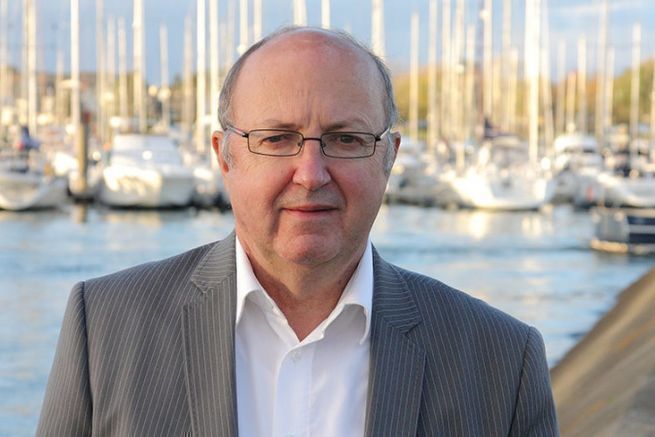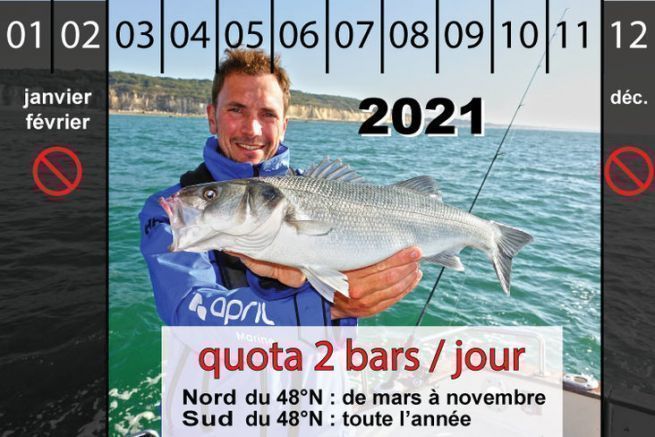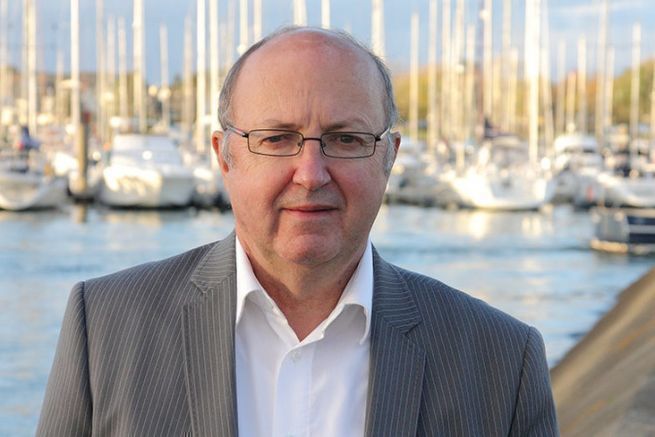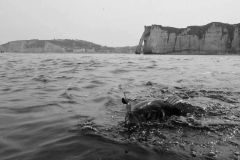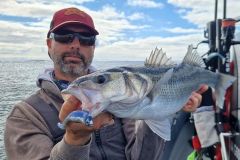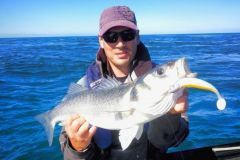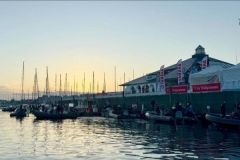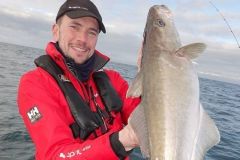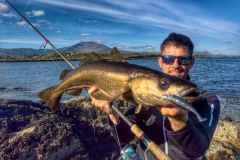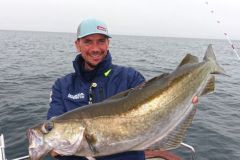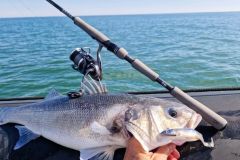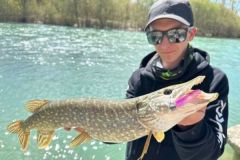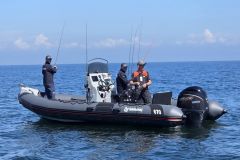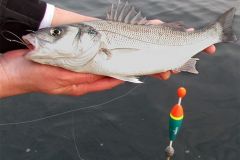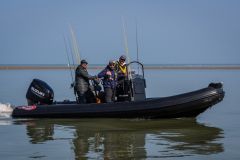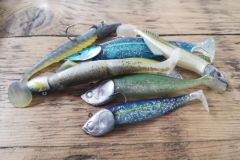Last week, the European Council validated a renewal of the 2020 quotas for sea bass fishing. Thus, recreational fishermen remain constrained to a quota of 2 sea bass per day per fisherman until November 30 . We then asked Jean Kiffer, President of the FNPP (Fédération Nationale de la Plaisance et des Pêches en Mer), about this news and the prospects for the evolution of quota management for 2022.
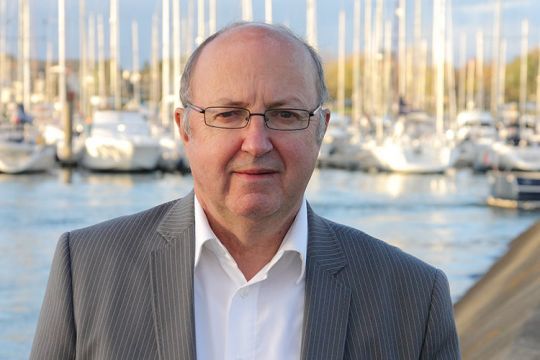
The Brexit paused negotiations on professional and recreational fishing quotas, what measures could have been implemented in 2021?
Jean Kiffer - The annual quota measures for professional and recreational fishermen are usually taken at the end of the year for application at the beginning of the following year. The multi-annual management plan for sea bass stocks implemented at the European level provided for better medium-term visibility. The Brexit procedures have created the opposite: a late announcement of quotas for the beginning of the year as well as the renewal of the 2020 measures for 2021 announced every 3 months, including in the middle of summer, creating uncertainty among recreational fishermen. The FNPP has denounced these measures!
The FNPP has been calling for a quota of 3 sea bass per day for several years. Does the science support this quota?
Jean Kiffer - The FNPP is asking for 3 bass per day over 8 months, rather than 2 bass over 9 months. We exclude in our request the month of March, which makes no sense since the sea bass is in its breeding season. This has not been retained, although if we use the analyses of the IPCC (Intergovernmental Panel on Climate Change, including Ifremer for France), the measures that we requested would have no more impact than the current measures.
The FNPP has informed the European Commission and the DPMA of my dissatisfaction. All the more so as some professional fishermen have obtained a relaxation of by-catches.
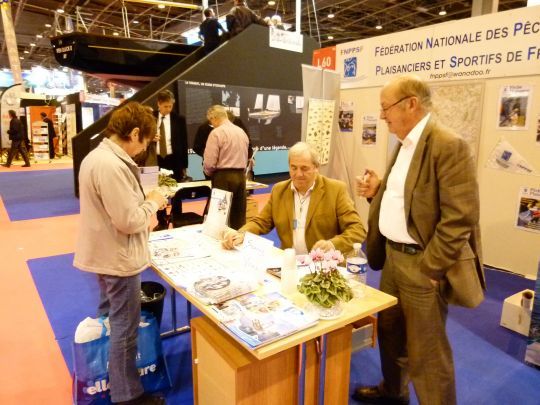
Do you have any news about the monthly quota project through a catch book?
Jean Kiffer - This tool that will allow fishermen to declare their catches has been tested in all European countries and the results are convincing. The European countries are therefore confident and we should have a first experimentation in 2022. France will be the driving force in this project and the FNPP will offer strong support and will be the pilot of the project. If the monthly quota cohabits for the first year with the daily quota, we will continue to ask for 3 sea bass per day per fisherman from April, putting aside the month of March.
At the federation, we are actively using the beta version of the tool created by FishFriender. Recently, the DPMA requested a survey on recreational fishing catches via "France Agrimer". I invited the members of the Federation to actively participate. The first returns of the survey give a number of recreational fishermen at sea around 4 million, including foot fishing and underwater fishermen. The previous survey gave 3 million. This shows a more important economic weight of our leisure activity.
I think the survey included very incidental anglers, such as sailboats that only put a line in the water once or twice a year.
My conclusion is that we represent a considerable economic and sociological weight and number of jobs that must be taken seriously by the decision-makers.
Would this project involve species other than sea bass?
Jean Kiffer - Yes, including cod and salmon at a minimum, which are recognized as being in difficulty at the scientific level.
I take advantage of this subject to denounce the massacres carried out on mackerel in the Channel and the North Sea by Dutch trawlers in the spring. The effect is immediate, this year it is very difficult to touch mackerel for anglers.
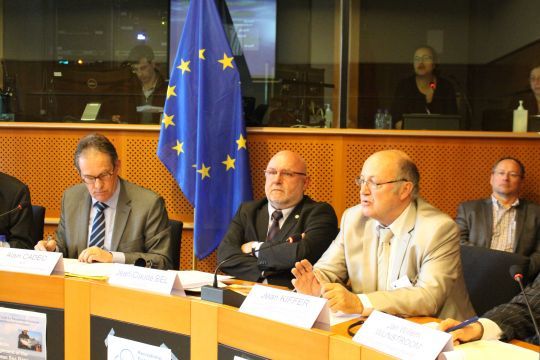
What are the next actions or meetings on your agenda regarding the 2022 quotas (Europe, Ministry...)?
Jean Kiffer - We are waiting for the elections which are a very favorable moment. We will first question the candidates to know their position. Then, in 2022, we will considerably increase our lobbying actions. I cannot say more for the moment, an announcement will be made soon on the FNPP website ( ndlr : www.fnppsf.fr ).
Our relations with the DPMA are improving, we have good relations with the new director Eric BANEL. Unfortunately, the constraints remain strong because of the position of certain elected officials in the government and certain subjects remain frozen, in a deadlock.
It should be noted that we have filed two complaints concerning bluefin tuna fishing against the DPMA, which must justify itself to the Council of State. The small-scale professional fisheries have done the same on the subject of bluefin tuna. The State has been condemned very recently on the way it distributes bluefin tuna quotas. These quotas influence the number of rings that we are granted and I think that we will have no problem justifying our low impact on the environment as responsible fishermen. Recreational fishermen can easily decide to release their catch under good conditions.
In this respect, it is planned that the FNPP will be received by the Minister of the Sea in September for the problems of bluefin tuna and sea bass; we should then be accompanied by LREM deputies.
We also hope to have meetings with Jean Castex and the President of the Republic to move forward on these issues.
Other meetings are planned at the European Parliament so that the FNPP is indeed an actor in the implementation of the monthly catch book project from 2022.

